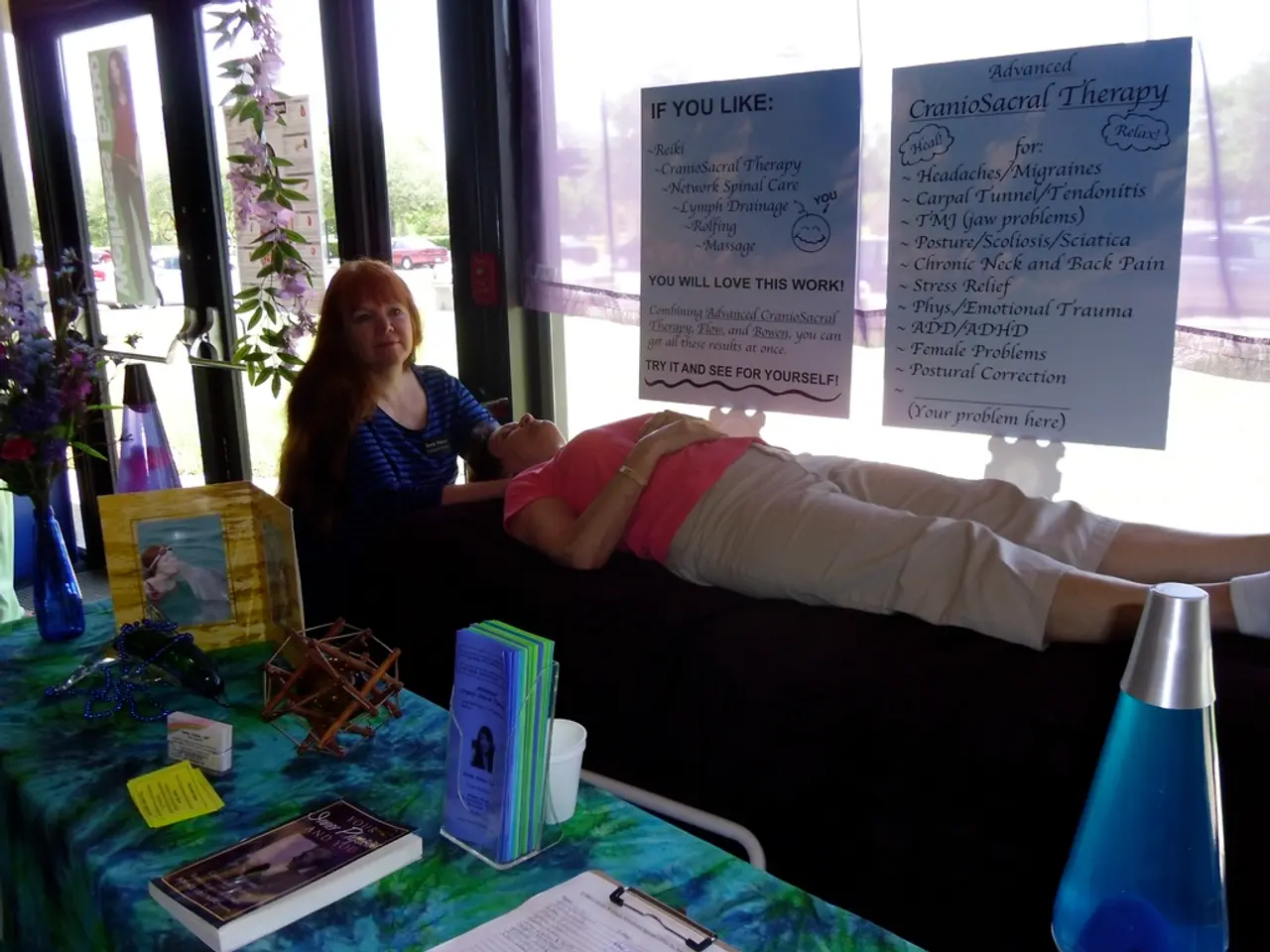Is it feasible to restore brain health following emotional distress-caused impairment?
Emotional trauma can cause significant damage to the brain's structure and function, but there is hope for recovery. Neurofeedback therapy, psychotherapy, lifestyle changes, and alternative treatments are all playing a part in addressing this issue.
Neurofeedback therapy, using EEG sensors to monitor brain waves, provides instant feedback on brain activity, helping patients regulate their own brainwaves and reduce symptoms of anxiety, depression, PTSD, and other conditions associated with psychological distress.
Trauma-focused psychotherapies like Cognitive Behavioral Therapy (CBT) and Eye Movement Desensitization and Reprocessing (EMDR) are effective in processing traumatic memories and regulating emotions. CBT helps reverse trauma-related brain changes by identifying and reformulating negative thought patterns, reducing avoidance behaviors, and improving emotional regulation. EMDR specifically facilitates reprocessing traumatic memories via bilateral stimulation, reducing their emotional intensity and helping the brain integrate these memories healthily.
Somatic therapy, addressing trauma stored physically, promotes body awareness and release of tension through breathwork and movement techniques. Lifestyle adjustments such as regular exercise, adequate sleep, balanced nutrition, and mindfulness or meditation practices contribute to neuroplasticity—the brain's ability to reorganize and form new neural connections after trauma. These lifestyle factors improve cognitive function and emotional resilience, complementing psychotherapy in reversing trauma-induced brain damage.
Alternative treatments like stem cell therapy are showing promise in brain injury recovery, reducing inflammation, supporting neural tissue repair, and enhancing neuroplasticity. However, more research is needed to determine their use for emotional trauma specifically.
Medications can also help alleviate symptoms and improve overall functioning in mental health conditions like depression, anxiety, PTSD, and bipolar disorder. Antidepressants, antipsychotics, and mood stabilizers may be prescribed to aid in recovery, targeting specific neurotransmitters involved in emotional regulation, such as serotonin and dopamine.
However, it's important to consider possible side effects when deciding whether medication is right for an individual. Proper management and monitoring by medical professionals is essential when taking medications for mental health conditions.
Herbal remedies like lavender, chamomile, and passionflower have been shown to have calming effects on the nervous system and may help alleviate symptoms of anxiety and insomnia. Mindfulness meditation, too, has been found to increase gray matter density in areas of the brain responsible for emotion regulation and self-awareness, improving cognitive function and reducing symptoms of stress and anxiety.
Recovery from emotional trauma is a complex process that involves ups and downs along the way. Factors such as social support systems, access to resources, and individual resilience levels all play a role in determining how successful someone will be in overcoming their trauma-related challenges.
Ongoing research and discoveries in the field of neuroscience suggest that with the right interventions, damaged areas of the brain can heal, leading to improved mental health outcomes for those affected by emotional trauma. Acupuncture and various types of therapy, including CBT, psychotherapy, and exposure therapy, can also help individuals manage their emotions and thoughts effectively.
In summary, effective reversal of emotional trauma-induced brain damage involves a combination of trauma-focused psychotherapies, lifestyle changes that support brain healing through neuroplasticity, and, when necessary, medications to alleviate symptoms. With the right care and interventions, recovery from emotional trauma is possible.
- Neurofeedback therapy, using EEG sensors to monitor brain waves, provides instant feedback on brain activity, helping patients regulate their own brainwaves and reduce symptoms associated with psychological distress like anxiety, depression, PTSD.
- Cognitive Behavioral Therapy (CBT) and Eye Movement Desensitization and Reprocessing (EMDR) are effective in processing traumatic memories and regulating emotions, contributing to better emotional regulation by reversing trauma-related brain changes.
- Lifestyle adjustments such as regular exercise, adequate sleep, balanced nutrition, and mindfulness or meditation practices promote neuroplasticity – the brain's ability to reorganize and form new neural connections after trauma, improving cognitive function and emotional resilience.
- Alternative treatments like stem cell therapy show promise in brain injury recovery, reducing inflammation, supporting neural tissue repair, and enhancing neuroplasticity, although more research is required for emotional trauma specifically.
- Medications can help alleviate symptoms and improve overall functioning in mental health conditions, targeting specific neurotransmitters involved in emotional regulation such as serotonin and dopamine, while proper management and monitoring by medical professionals are essential to avoid potential side effects.




